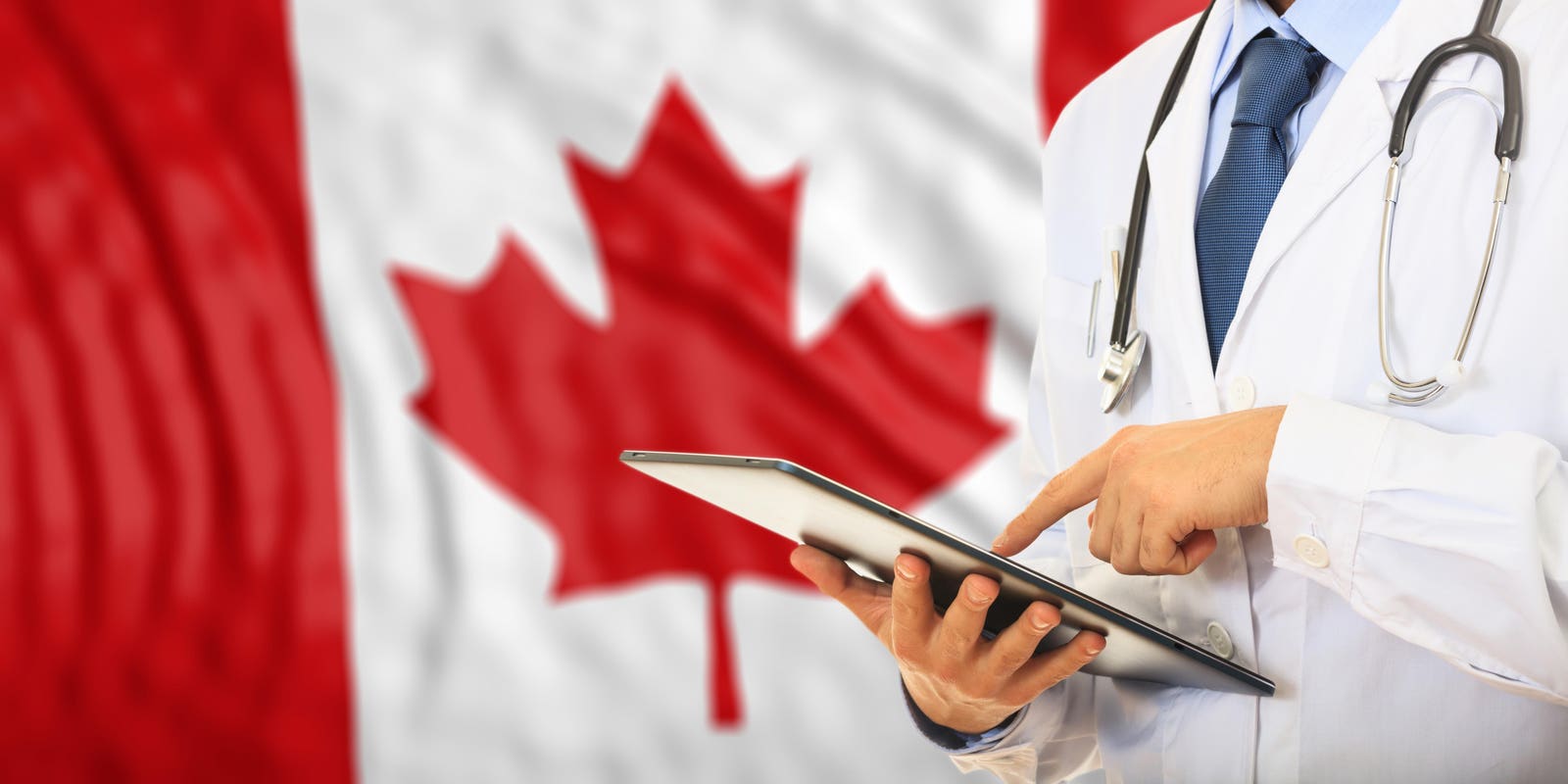Canadian health care leaves patients frozen in line
“This year, Canadian patients faced an average wait of 27.7 weeks for medically necessary treatment,” … [+]
More than a quarter of Americans receive tax-funded health coverage through Medicaid or the Children’s Health Insurance Program, according to the latest federal estimates.
But that “free” coverage has a significant cost. Medicaid beneficiaries must wait longer for care than those with private insurance. A 2021 study found that Medicaid patients waited 1.3 days longer than commercially insured ones for primary care.
According to another study, Medicaid beneficiaries are 1.6 times less likely to successfully schedule a primary care appointment than those with primary insurance and 3.3 times less likely to get an appointment with a specialist.
Such weights are endemic to public health insurance. A new research paper from the Fraser Institute, a Canadian think tank, shows what happens when everyone in a country is trapped in a public health insurance system.
This year, Canadian patients faced an average wait of 27.7 weeks for medically necessary treatment from a specialist after being referred by a general practitioner. This is over six months the longest ever recorded. That’s a slight increase from last year’s median wait and a 198% increase from the 9.3-week median wait patients faced in 1993, the year Fraser began tracking wait times.
Some patients have it worse than others. Patients in Nova Scotia have an average wait of 56.7 weeks more than a year for specialist treatment after referral by a general practitioner. Those on Prince Edward Island are also in the year-long waiting club median of just over 55 weeks.
Patients have the longest post-referral wait for plastic surgery, a median delay of just over 52 weeks. Orthopedics and neurosurgery are close behind, with media weights of just over 44 and 43 weeks, respectively.
Across the board, patients waited a median of just under five weeks longer than what doctors say is “clinically reasonable” to receive treatment from a specialist after securing a referral. Such long delays for treatment can put patients’ health at risk, as can long waits for diagnostics. By 2023, Canadians face an average wait of around 13 weeks for an MRI, 6.6 weeks for a CT scan, and just over 5 weeks for an ultrasound.
All told, more than 1.2 million Canadians, out of a population of 38 million, are waiting for some form of treatment in 2023. If each of these patients is waiting for just one procedure, that means 3% of the Canadian population is waiting to receive Medical care this year. In Nova Scotia, just over 8% of the provincial population was stuck in line.
These delays hurt more than just individual patients. Looking only at the number of work hours people lost while waiting in line for care, the Fraser study determined that healthcare waits cost Canada just under $3,000 per person $3.6 billion in 2022. Considering all those hours in a week, And medical whites cost the country $10.9 billion just under $9,000 per patient.
Other studies have found that delays for a select number of diagnostics and treatments cost the economy about $15 billion annually.
Then there are the direct costs associated with all this waiting. The average Canadian family of four paid about $17,000 in taxes to fund the country’s “free” healthcare system by 2023. Their tax dollars appear to buy them a place in line.
Many Canadians are tired. Less than half were satisfied with the country’s healthcare system in 2023, down from nearly 70% in 2020. A growing number of politicians, including Ontario Premier Doug Ford, have begun talking about the problems with socialized medicine and working to help patients access Private alternatives.
Democrats have made expanding Medicaid the centerpiece of their approach to health reform. In the last decade, they have had some success, as enrollment has increased by 57%.
The progressive wing of the party is still pushing for Medicare for all, a full government takeover of the health insurance system, which would import Canadian-style health care into the United States. Rep. Dean Phillips, D-Minn., who has mounted a primary challenge to President Biden’s recently endorsed Medicare for All.
But expanding access to coverage is not the same as expanding access to care. Canadians know this truth all too well, because their government insurance card only buys them a month long wait for care.
#Canadian #health #care #leaves #patients #frozen #line
Image Source : www.forbes.com







